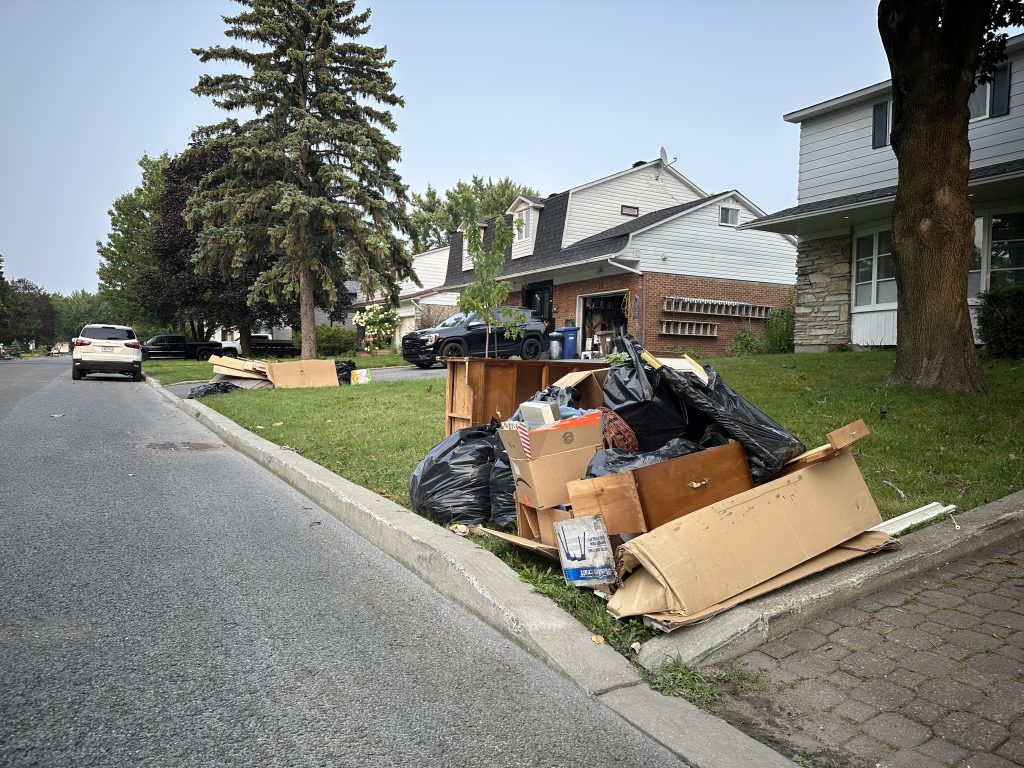The historic heavy rain on August 9th destroyed many important items for Montreal musician Gregory Manahan.
“Years of playing in bands, everything, all gone. All was floating, guitars floating.”

His studio, located in the basement of his home on Montreal’s West Island in Dollard-des-Ormeaux, was submerged by about 2 feet of water, leaving his guitars, amplifiers, keyboards, speakers, and photos from his 25 years of adventures with his wife in ruins.
Yet, the flooding hasn’t dampened his spirit – he’s now sharing a message of resilience and community solidarity.
“My neighbor next door called and said, ‘Greg, I’ve got water in the basement. Check your basement.’ I called Sandra and told her to go down and check ours. She came out screaming, saying, ‘Get your butt back over here because we’re flooding,’” Manahan remembered.
He had his first experience of flooding in 1998, which taught him the importance of connecting with family and community to recover from such traumatic events.
“I was working in Manitoba during the flood of the century. I worked through all that. I was lucky enough to work with the army, and we got through it. I got transferred to Montreal, and guess what? Ice storm. And we got through that. And now here we are years later. We’ll get through this.”

In a CBC interview, psychologist Joe Flanders notes that it’s common to experience anxiety, disorientation, dissociation, and discouragement after a natural disaster. He emphasizes the critical importance of coming together as a community, relying on loved ones, and supporting one another.
This is precisely what Gregory’s neighbors are preparing to do.
“On a positive note, we have a street party coming up. We were going to cancel it, but our good friend said, ‘No, we’re not.’ We’re going to have a group hug and still have a street party in a couple of weeks, hopefully with a live band.”
The Lancet Planetary Journal reports that up to 60 percent of adults could suffer from post-traumatic stress disorder (PTSD) for up to six months after a wildfire.
At least 25 percent of individuals may also develop major depressive or anxiety disorders. To address these issues, several West Island psychologists and mental health clinics have implemented open-door policies, with some offering free counseling.
“Put politics aside, just hug your neighbor, do what you can,” Manahan added.